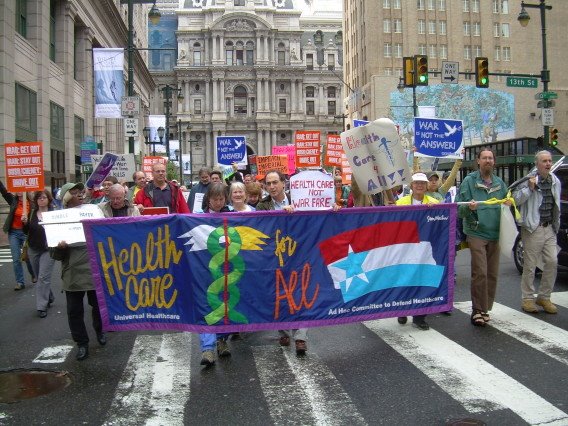The initial demographics suggested that there were equal numbers of men and women, liberals (44%), moderates (23%), conservatives (33%), a larger number of those older (55+) than the US population, and fewer Latinos. People were more supportive of government spending (51%) than not adding to the national debt (38%) at this time of recession. 61% felt government should do more to strengthen the economy. People were equally divided between taking care of the current generation vs. redirecting resources for "future generations" and equally divided between government caring for the most vulnerable and individual responsibility to take care of oneself. More people felt the rich should pay higher amounts to reduce the deficit.
It was interesting to hear how people balanced the choices (which were pre chosen by the sponsors) between cuts in spending and raising revenue. The final report won't be out for several weeks, but my impression was that people were angry about the undue influence of lobbyists and corporate interests over that of ordinary people. The recent decision not to extend unemployment benefits and FMAP funding for Medicaid is a perfect example of this.
People favored raising taxes over cutting health care or social security. When people were asked if they would cut Medicare and Medicaid by 5, 10 or 15%, the largest group (38%) said they wanted no cuts. Many felt that the choices were too limited (in the "options workbook" there is this statement "at the moment, the nation does not seem prepared to consider fundamental reform of the kind suggested in the first two approaches above - premium support or single payer." Amazingly, when people were asked to comment on their health cuts, there was a huge support for single payer health care - enough to get into the final report. In Philadelphia, which was the host center for the entire America Speaks program and where I was one of the 450 people who showed up, there was loud clapping for single payer. Dr. Alice Rivlin was in the Philadelphia conference all day and is one of the members of the debt commission. I went up to her and pointed to my T shirt which said "It's simple: Medicare for All". She most assuredly heard the response to single payer.
There was one area that people definitely wanted cut - defense spending (85%) and raise taxes on corporations to 40% (59%), millionaires (68%), a carbon tax (64%) and stock and bond trading (61%) with the goal of cutting 1.2 trillion by 2025.
I have to say that the technology was pretty impressive. There were live camera interviews from all of the sites cross the country. Everyone of the 3,500 people had keypads which allowed instantaneous polling within 20 seconds of asking a question. Each of the sites had tables with 6-8 people randomly assigned and a facilitator who discussed all of these issues. Each table had a laptop and free form comments were invited which allowed other choices besides the ones prescribed by the organizers. I was surprised at the consensus at my table. If there were teabaggers, they did not make their presence known in Philadelphia.
AmericaSpeaks says that there is a scheduled meeting next week to discuss these national findings. They have access to key Congressional staffers and some members. I, of course, am too cynical to believe that it will make much of a difference since our politicians are totally bought off by the lobbyists. I remember the town hall meetings in 2006 leading up to the health reform debate which also supported a single payer system. It was not even a consideration for the politicians.
But for those of us in the town hall meeting, I think the message was pretty clear - raise taxes on those who have the money, cut defense, don't cut services for main street Americans, and stop listening to special interests and start listening to the American people.


